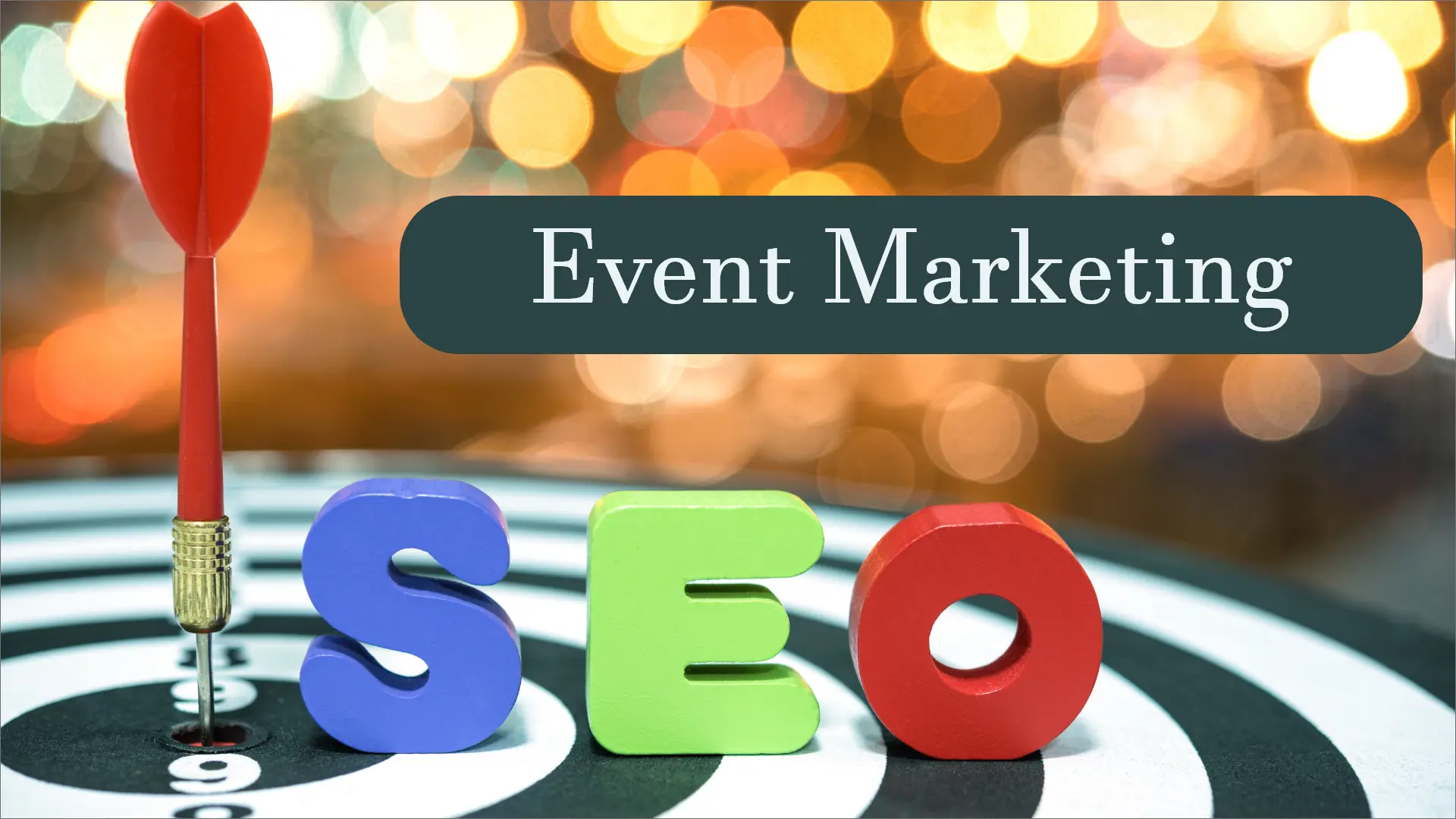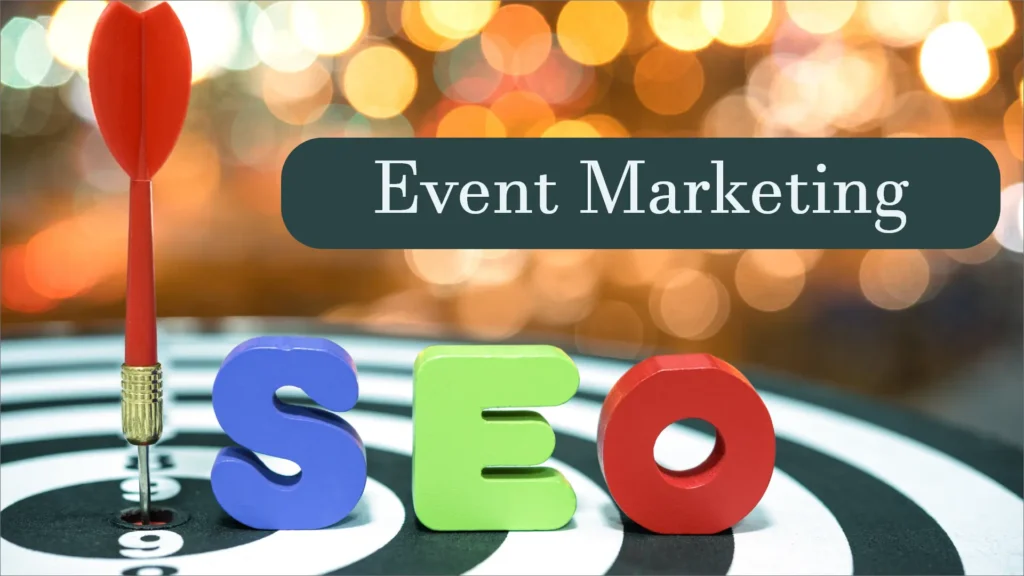
SEO Guide for Event Marketing: Tips & Tricks for Maximum Visibility

In the dynamic landscape of event marketing, harnessing the power of SEO is paramount for ensuring the triumph of your endeavors. This introduction serves as a gateway to understanding the pivotal role SEO plays in propelling events to unprecedented levels of success.
SEO, or Search Engine Optimization, acts as the digital beacon guiding potential attendees to discover and engage with your event. It is the key to unlocking maximum visibility across search engines, ensuring that your event stands out amidst the myriad of online offerings. In an era where online presence is synonymous with credibility, a well-optimized event website not only attracts a larger audience but also establishes trust and authority in the eyes of potential attendees.
As we delve into the intricate facets of event SEO, we’ll explore how strategic visibility lays the foundation for event triumphs, influencing attendance, and fostering lasting connections with your target audience.
Step-by-Step SEO Process For Event Marketing
Here is the step-by-step SEO process for event marketing :
i. Understanding Event-Specific Keywords
Identifying the right keywords is the cornerstone of effective SEO for events. These keywords act as gateways, connecting potential attendees with your event. It’s crucial to delve into both short-tail and long-tail keywords, ensuring a comprehensive approach to search queries. Tools like Google Keyword Planner become invaluable allies in this quest, helping you pinpoint the terms most likely to resonate with your audience.
Long-tail keywords, in particular, can capture the nuanced searches potential attendees might perform, providing a strategic advantage in the competitive landscape of event marketing.
ii. On-Page SEO Optimization
Optimizing your event’s website for search engines is a multifaceted endeavor. Crafting compelling title tags and meta descriptions is akin to creating digital invitations that entice users to explore more. Header tags organize your content, making it both user-friendly and search engine-friendly.
Ensuring that your content integrates keywords seamlessly is essential for search engine algorithms to recognize your event’s relevance. Don’t forget image optimization – visually engaging content enhances user experience and contributes to SEO.
iii. Creating an SEO-Friendly Event Website
Your event website is the digital storefront for potential attendees. Optimize it for both search engines and users by selecting a mobile-friendly and responsive design. Page loading speed directly impacts user experience, and a fast-loading website is favored by search engines. Clear and organized URL structures facilitate easy navigation for both users and search engine crawlers.
Incorporating schema markup specifically designed for events provides additional context to search engines, improving the likelihood of your event appearing in relevant searches.
iv. Local SEO for Event Promotion
Local SEO strategies play a pivotal role in promoting events to a targeted audience. Claiming and optimizing your Google My Business listing ensures that your event is prominently featured in local searches. Consistency in NAP (Name, Address, Phone Number) information across various online platforms establishes trust and credibility.
Actively seeking and managing customer reviews not only contributes to local SEO but also influences potential attendees’ decisions.
v. Content Marketing for Event SEO
Compelling and shareable content is a driving force behind successful event SEO. Utilize diverse content formats such as blog posts, infographics, and videos to cater to varied audience preferences. Integrate event-related keywords organically within your content, enhancing its relevance to search engines. Through strategic content marketing, you not only improve your event’s visibility but also establish authority and credibility in your niche.
vi. Link Building Strategies
Link building is a foundational element of SEO, and for events, it’s about establishing digital partnerships. Forge relationships with influencers and industry partners for opportunities to showcase your event. Guest posting on relevant websites not only enhances your online presence but also generates valuable backlinks. The creation of shareable content is a proactive approach to earning backlinks, amplifying your event’s reach across the digital landscape.
vii. Social Media Integration
Social media platforms are dynamic channels for promoting events and enhancing SEO. Optimize your social media profiles by incorporating event-related keywords. Encourage social sharing among your audience to amplify your event’s reach. Social media signals are increasingly considered by search engines, making an integrated social media strategy an essential component of your overall SEO plan.
viii. Monitoring and Analytics
Setting up robust monitoring and analytics tools is vital for understanding the effectiveness of your SEO efforts. Google Analytics provides insights into website performance, user behavior, and conversion metrics. Regularly monitor keyword rankings and website traffic to gauge the impact of your SEO strategy. Analyze the data gathered to make informed decisions, refine your approach, and adapt to evolving trends.
Outcomes Of Using SEO In Event Marketing
Utilizing SEO in event marketing yields a multitude of positive outcomes, significantly impacting the success and visibility of your events. Here are the key outcomes of integrating SEO into your event marketing strategy:
1. Enhanced Visibility
SEO increases the online visibility of your event, making it more likely to appear in search engine results. Improved rankings for relevant keywords ensure that your event is easily discoverable by individuals actively searching for similar events.
2. Increased Website Traffic
Optimized event websites attract more organic traffic from search engines. Targeted keyword optimization drives qualified traffic, leading to a higher likelihood of conversion and event participation.
3. Better User Experience
SEO practices, such as mobile optimization and fast-loading websites, contribute to an enhanced user experience. A positive user experience encourages attendees to explore the event details, register, and engage with the event content.
4. Targeted Audience Reach
SEO allows you to tailor your content to specific keywords and demographics, ensuring that your event reaches a more targeted audience. Local SEO strategies can attract attendees from specific geographic areas, increasing the relevance of your event to a regional audience.
5. Cost-Effective Marketing
Organic search traffic generated through SEO is a cost-effective way to attract potential attendees. Compared to paid advertising, the long-term benefits of SEO contribute to sustained visibility and reduced marketing costs over time.
6. Long-Term Results
While some marketing efforts yield short-term gains, SEO provides lasting results. Consistent optimization efforts lead to sustained visibility, ensuring that your event continues to attract attendees over an extended period.
SEO Event Marketing Checklist Points
- Event schema
- Content marketing
- Get your keywords right
- Keyword research
- Local events demand local SEO
- Localize your SEO efforts
- Measuring success
- Optimize your event website
- Optimizing website speed
Final Words - How Long is a Business Day?
As we conclude this exploration into SEO for event marketing, the amalgamation of these strategies forms a potent recipe for success. A well-optimized event not only attracts a broader audience but also fosters a sense of trust and credibility. The journey through event SEO is a continuous evolution, adapting to the ever-changing digital landscape.
By implementing these tips and tricks, your event can transcend the digital noise, leaving a lasting imprint on potential attendees and maximizing its overall impact.
Author



